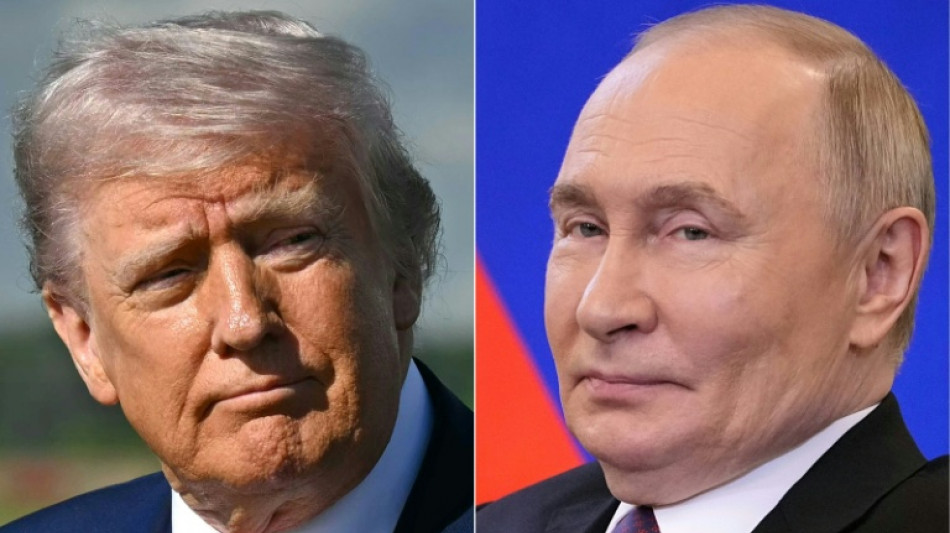
-
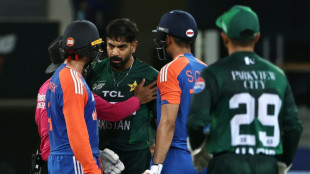 Coach urges Pakistan to 'focus on cricket' for India Asia Cup final
Coach urges Pakistan to 'focus on cricket' for India Asia Cup final
-
Denmark says airport drone flights were 'hybrid attacks'
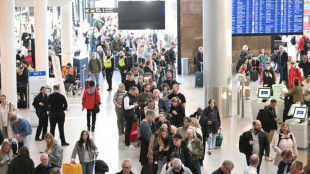
-
 Liga champions Barca claim comeback win at Oviedo
Liga champions Barca claim comeback win at Oviedo
-
Aston Villa earn first win to launch Europa League bid, Rangers beaten
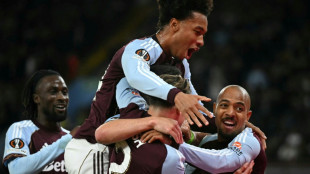
-
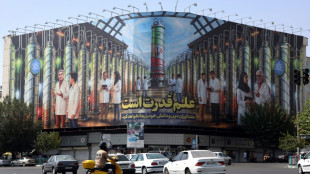 UN to vote on Iran as sanctions loom
UN to vote on Iran as sanctions loom
-
Amazon to pay $2.5 bn to settle Prime enrollment case
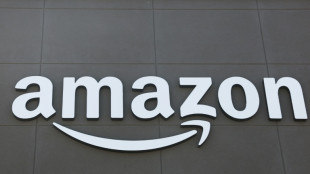
-
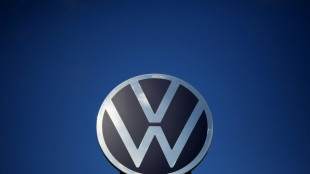 Volkswagen to take Dieselgate case to federal court
Volkswagen to take Dieselgate case to federal court
-
DeChambeau-Thomas to face Rahm-Hatton in Ryder Cup opener
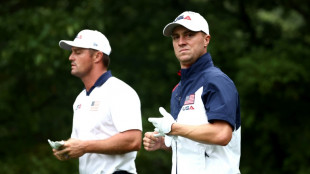
-
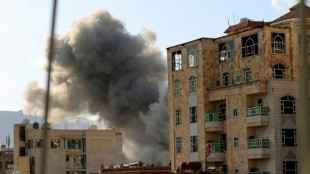 Israel strikes kill eight in Yemen's rebel-held capital: Huthis
Israel strikes kill eight in Yemen's rebel-held capital: Huthis
-
Madagascar police fire tear gas at protest over power, water cuts
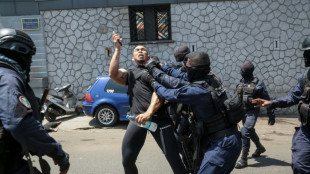
-
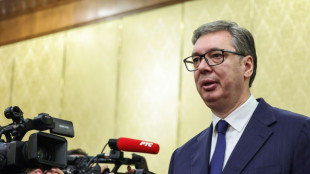 US sanctions on Serbian oil firm will start October 1: Vucic
US sanctions on Serbian oil firm will start October 1: Vucic
-
Argentina choose Carreras over Albornoz at fly-half
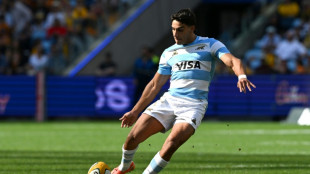
-
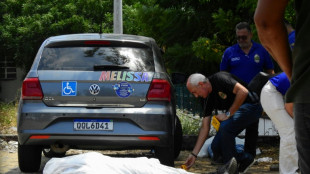 Two teens killed in shooting at Brazil school
Two teens killed in shooting at Brazil school
-
Denmark says airport drone flights aimed to create fear
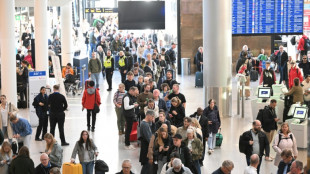
-
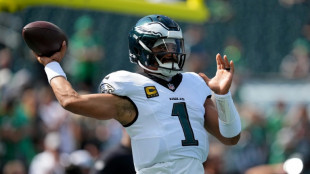 Eagles aim to turn tables on Bucs in battle of NFL unbeatens
Eagles aim to turn tables on Bucs in battle of NFL unbeatens
-
Pakistan down Bangladesh to set up Asia Cup final with India
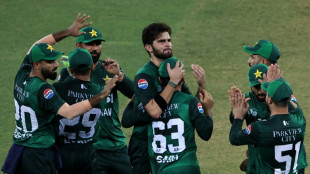
-
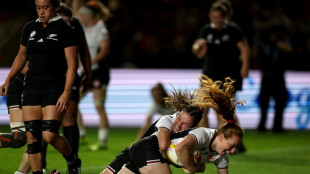 Tessier adamant Canada can 'go all the way' to win Women's Rugby World Cup
Tessier adamant Canada can 'go all the way' to win Women's Rugby World Cup
-
Inmates beheaded in second Ecuador prison massacre in days
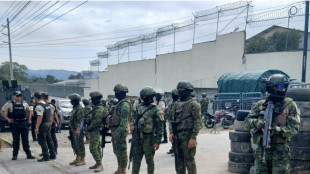
-
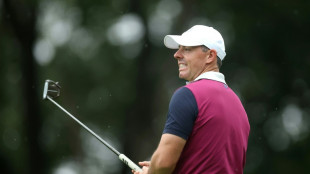 McIlroy becomes Europe's inspirational Ryder Cup cornerstone
McIlroy becomes Europe's inspirational Ryder Cup cornerstone
-
Mix and match at Prada, joyful colour at Fendi
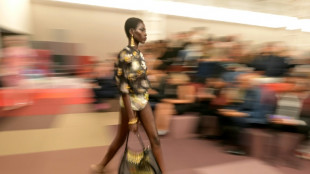
-
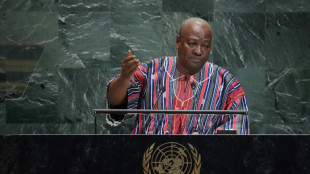 At UN, Ghana's leader warns against normalizing anti-migrant 'hatred'
At UN, Ghana's leader warns against normalizing anti-migrant 'hatred'
-
Trump urges Turkey's Erdogan to stop buying Russian oil
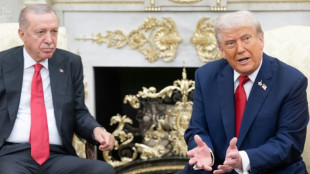
-
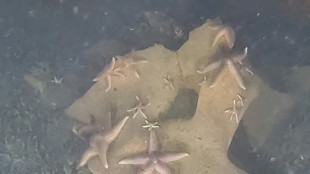 Sea life thriving on unexploded Nazi bombs, sub discovers
Sea life thriving on unexploded Nazi bombs, sub discovers
-
'Bullets, fire and fear': Haiti is at war, its leader warns
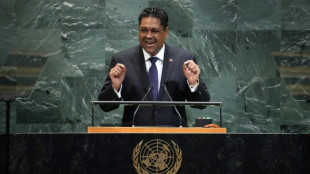
-
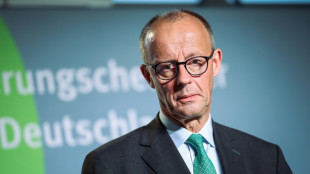 Germany vows defence against Russia in drone warfare and in space
Germany vows defence against Russia in drone warfare and in space
-
France's Sarkozy prepares for five-year prison term after guilty verdict
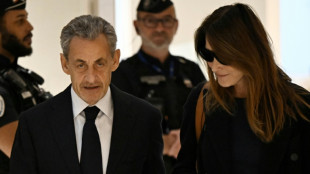
-
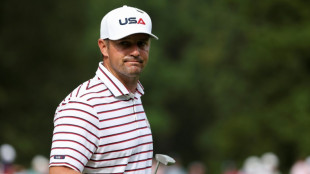 DeChambeau yearns to face McIlroy, sees Trump as Cup force
DeChambeau yearns to face McIlroy, sees Trump as Cup force
-
Canada stick with same line-up for Women's Rugby World Cup final
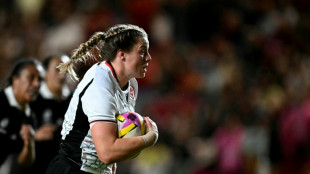
-
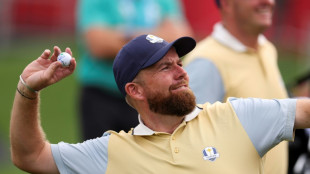 Europe players ready for hecklers and Trump at Ryder Cup
Europe players ready for hecklers and Trump at Ryder Cup
-
Hong Kong's coastal businesses pick up pieces after typhoon
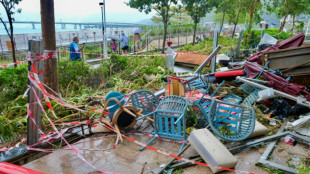
-
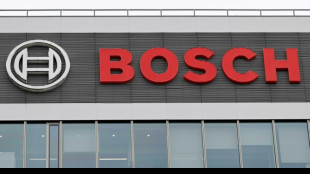 Germany's Bosch to cut 13,000 jobs in blow to auto sector
Germany's Bosch to cut 13,000 jobs in blow to auto sector
-
Palestinian leader tells UN no role for Hamas in state
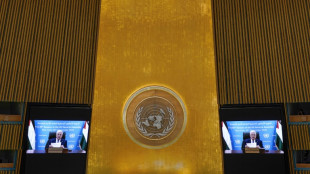
-
 Taiwan races to rescue two dozen missing after barrier lake burst
Taiwan races to rescue two dozen missing after barrier lake burst
-
UN tells Trump probe launched over his 'sabotage' claims
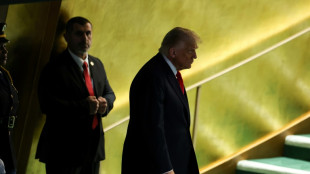
-
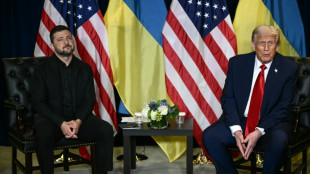 Zelensky says Russian officials should end war or find 'bomb shelters'
Zelensky says Russian officials should end war or find 'bomb shelters'
-
Sinner eases past Cilic to launch China Open title bid

-
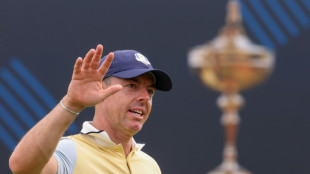 McIlroy says Bryson matchup in Ryder Cup would be 'wonderful'
McIlroy says Bryson matchup in Ryder Cup would be 'wonderful'
-
'A mess': Alcaraz says players want better deal from Grand Slams
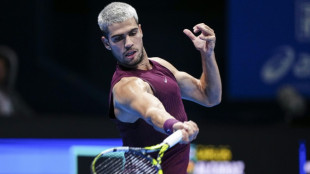
-
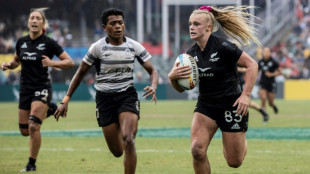 New Zealand's Miller back for World Cup bronze clash with France
New Zealand's Miller back for World Cup bronze clash with France
-
France's Sarkozy: from palace to prison
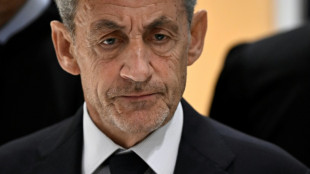
-
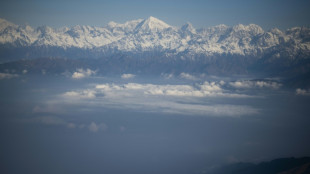 Polish climber on skis makes Everest descent in first
Polish climber on skis makes Everest descent in first
-
NATO sticks to guns as allies talk tough on Russian jets
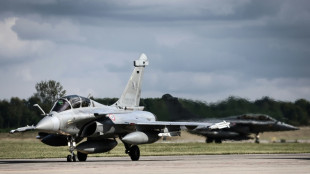
-
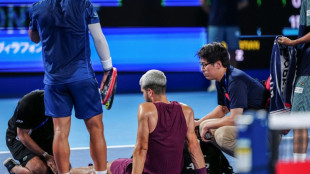 Alcaraz sweats on ankle injury after opening win in Japan
Alcaraz sweats on ankle injury after opening win in Japan
-
Denmark says airport drone flights designed to create fear
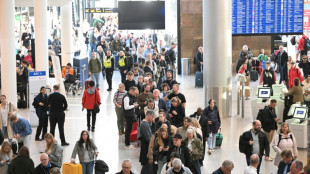
-
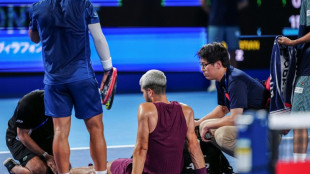 Alcaraz survives injury scare and rain delay to win Tokyo opener
Alcaraz survives injury scare and rain delay to win Tokyo opener
-
Ticketmaster agrees clearer prices after Oasis probe
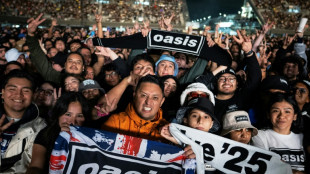
-
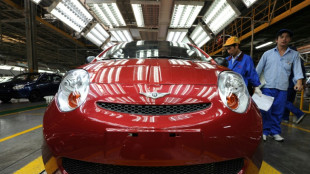 Stocks downbeat ahead of key US data
Stocks downbeat ahead of key US data
-
EU opens antitrust probe into German software giant SAP
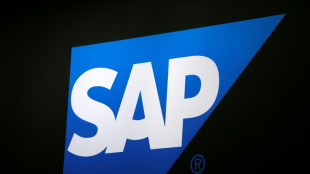
-
 Meet Ali Akbar, the last newspaper hawker in Paris
Meet Ali Akbar, the last newspaper hawker in Paris
-
EU rejects Apple demand to scrap landmark tech rules
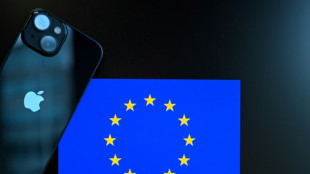
| RIO | 2.38% | 65.43 | $ | |
| RBGPF | 1.49% | 76.43 | $ | |
| CMSC | 0.37% | 24.17 | $ | |
| NGG | -0.89% | 70.52 | $ | |
| GSK | -1.67% | 39.52 | $ | |
| RYCEF | -0.7% | 15.64 | $ | |
| RELX | -0.19% | 46.28 | $ | |
| VOD | -0.53% | 11.27 | $ | |
| BTI | -0.06% | 52.35 | $ | |
| AZN | -2.49% | 73.53 | $ | |
| CMSD | -0.08% | 24.33 | $ | |
| SCS | 0.12% | 16.7 | $ | |
| BCC | -1.41% | 76.65 | $ | |
| BCE | -0.3% | 23.05 | $ | |
| BP | 0.14% | 35.26 | $ | |
| JRI | -0.5% | 13.97 | $ |

Can NATO keep Trump on-message about Russia threat?
When leaders from NATO's 32 countries gather for a summit in The Hague next week, most want to send a clear message: Russia is the main threat to their alliance.
But the loudest voice in the room likely won't be on the same page.
Since coming back to office, US President Donald Trump has upended the West's approach towards Russia's war on Ukraine by undercutting Kyiv and opening the door to closer ties with Moscow.
While the volatile leader has expressed some frustration with Russia's Vladimir Putin for refusing a ceasefire, he has steered clear of punishing the Kremlin.
At a G7 summit this week Trump made waves by saying the group of industrialised countries should never have expelled Russia.
Ahead of the Hague gathering, diplomats at NATO have been wrangling over a five-paragraph summit statement, with many countries pressing for a full-throated assertion of the menace from Moscow.
That, they say, will help explain the main thrust of the meeting: an agreement for countries to ramp up defence spending to satisfy Trump's demand for it to reach five percent of GDP.
- Statement on Russia 'threat' -
Since the Kremlin launched its 2022 invasion of Ukraine, the alliance has called Russia "the most significant and direct threat to allies' security and to peace and stability in the Euro-Atlantic area".
But this time around the United States -- backed up by Moscow-friendly Hungary and Slovakia -- has been intent on watering that down.
Diplomats have been juggling with variants such as referring to "threats, including Russia" or mentioning "the long-term threat posed by Russia to Euro-Atlantic security".
The verbal nuances may seem slight, but they mean a lot to those countries being asked to massively ramp up spending and those on NATO's eastern flank most threatened by the Kremlin.
NATO has warned that Russia could be ready to attack an alliance country within five years.
"If we can get Trump to sign off on calling Russia a long-term threat then that would be a good result," a senior European diplomat told AFP.
- 'Near threat' -
As US peace efforts between Russia and Ukraine have stalled, the diplomat said that Washington appeared to have "moved a centimetre in our direction" on taking a stronger stance on Russia.
"Of course more hawkish countries want to go further -- but just getting Trump to agree that would still be fine," the diplomat said.
Part of the US reasoning is that Washington is more worried about the threat China poses worldwide -- and that Russia is more a problem just in Europe.
"Russia is the near threat," said US ambassador to NATO Matthew Whitaker.
"But China is obviously a big challenge for all of us, and we need to be allied and address those threats as well."
Camille Grand of the European Council on Foreign Relations said that beneath the diplomatic fine-tuning, NATO was being confronted by a "fundamental question".
"How does the United States view Russia?" he said. "So far we haven't really got an answer."
Even if NATO does opt for stronger wording on Moscow, there is always the possibility that Trump could show up in The Hague and directly contradict it.
But the debate could come into sharper focus in the months after the summit when the United States could announce a pull-back of forces in Europe as part of a review of its global deployments.
- Division on Ukraine -
One area where Washington appears clearly not on board with most other allies is on backing Ukraine.
Ukrainian leader Volodymyr Zelensky is set to attend on the sidelines of the summit but his involvement is being kept to a minimum to avoid a bust-up with Trump.
Diplomats said there should be a reference in the summit statement linking new defence spending to helping Ukraine -- but there will be no talk of Kyiv's long-term push to join NATO.
"The US does not see Ukrainian security as essential to European security," said Kurt Volker, a former US ambassador to NATO.
"Our European allies do, so they feel that if Putin is allowed to prevail in Ukraine, or if Ukraine does not survive as a sovereign, independent state, they are at risk."
A.Zbinden--VB
